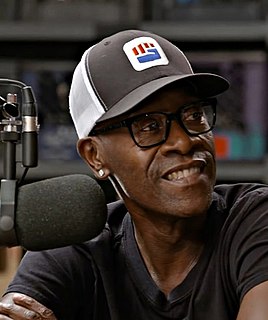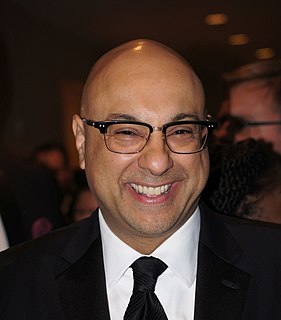A Quote by Biz Stone
When you think about Twitter, there are people all around the world reporting twenty-four seven, every second. They're reporting what they're seeing and what's happening around them. So there's a lot of potential for breaking news.
Related Quotes
I don't think journalism changes. It's about digging into stories and telling them well. The basic tenets of great reporting stay the same while things around it change. Technology has made reporting easier, but it has also caused job loss. Social media has increased discussion around topics, but it has its own challenges at times.
I use social media every day. I don't have a Twitter account, but not because I'm a dinosaur about it. I have enough of a platform here. People in my position who do it tend to use it in a promotional way or in a hamstrung way. I look at Twitter all the time as a news tool or for cultural conversation. I've used it in my reporting. It's very useful.
My reporting in Africa wouldn't be political per se, but it's certainly the point of my reporting - and of a lot of other reporters I know: Human suffering is bad, and if reporting stories about it brings it to light and someone does something, that's part of the point of journalism. And it's a thin line between that and activism, and you have to be careful about that.
The truth is the committed left press in America is not longer interest in reporting the news. Anything that hinders a favorable view of the far left will be ignored; anything that advances liberal causes will be celebrated. News reporting today is largely about ideology and shaping the culture, not about informing the public.
I think that's why I wanted to write about seventh grade. I'd say seventh grade is a time when kids are really exploring a lot and becoming aware of the world around them in a deeper way. And they just have sort of have a wider appreciation of what's happening around them. They are seeing themselves from the outside more than they had before.
Media bias in editorials and columns is one thing. Media fraud in reporting 'facts' in news stories is something else. ...The issue is not what various journalists or news organizations' editorial views are. The issue is the transformation of news reporting into ideological spin, along with self-serving taboos and outright fraud.
The good news is you can get a lot of information off the Internet for free and in a hurry. But I think the breaking up of the media, which is otherwise kind of healthy, has contributed to less actual reporting and a louder, more contentious, more divisive public discourse, highlighting conflict, sometimes falsely.
The weakness of cable news is that it chases its audience around. Your audience wants fast-paced, popular news. It needs real news. Cable news changes its stripes based on audience reaction. Viewers are reacting well to breaking news? You probably do more breaking news than you need to. The struggle is building something so that people will come to you, as opposed to constantly changing what you are because you're unsure of where the audience is.



































